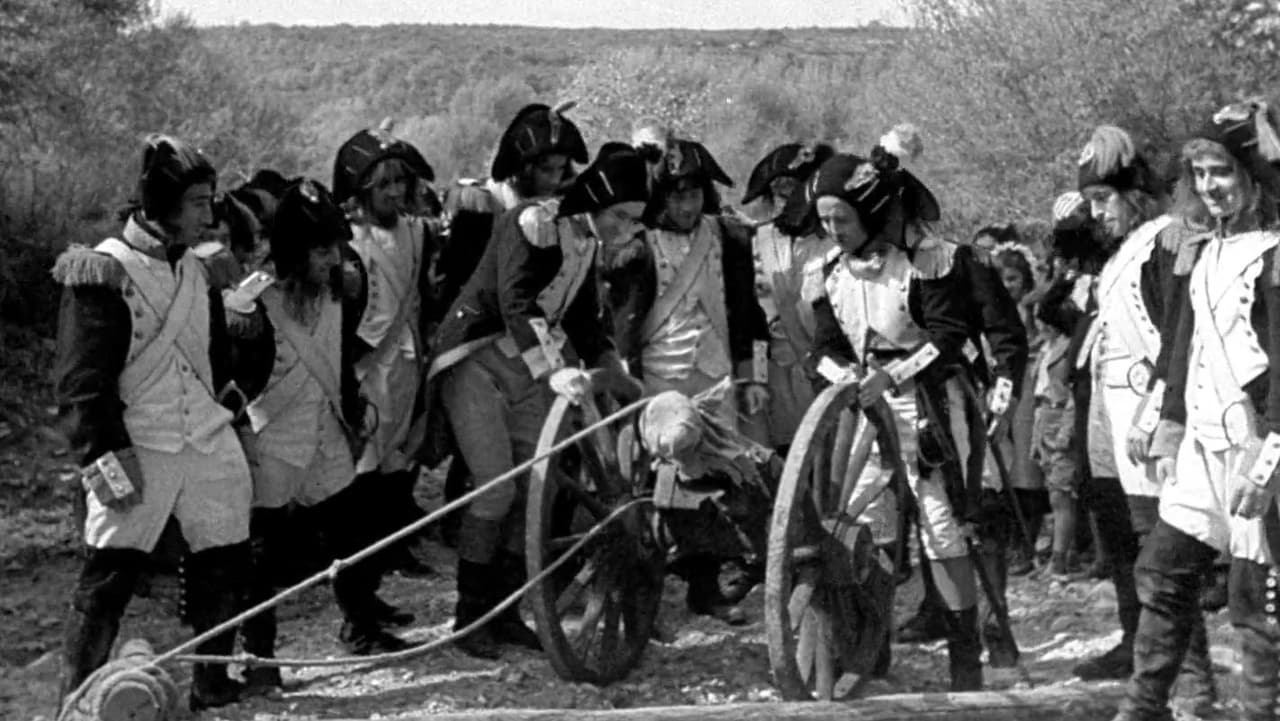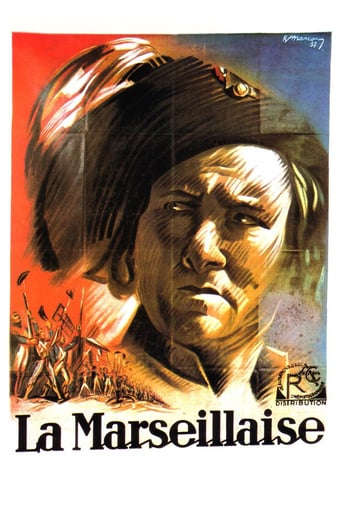Helloturia
I have absolutely never seen anything like this movie before. You have to see this movie.
filippaberry84
I think this is a new genre that they're all sort of working their way through it and haven't got all the kinks worked out yet but it's a genre that works for me.
Rosie Searle
It's the kind of movie you'll want to see a second time with someone who hasn't seen it yet, to remember what it was like to watch it for the first time.
Skyler
Great movie. Not sure what people expected but I found it highly entertaining.
Cornelie
Aside from being a brilliant film, at different times humorous and moving, LA MARSEILLAISE is hands down the most accurate film out there when it comes to the French Revolution.Some have noted it's "one-sided" aspect, but allow me to make an observation: when royalists want to make a one-sided film on the French Revolution, they... make stuff up! Usually utter bilge, such as THE SCARLET PIMPERNEL or A TALE OF TWO CITIES, films (and original books) whose only basis in historical fact can be summed up as, yes, there was a revolution in France in 1789, and yes indeed, Britain and France are on opposite sides of the Channel. Those who support the republic, on the other hand, have typically had the scruples to actually *do their research* before setting out to mold the public's impressions of so momentous an historical event. Such is the case with LA MARSEILLAISE, where a large percentage of the dialog is taken from historical records. (In fact, the only real complaint one could have as far as historical accuracy goes is costuming, but I've yet to see any film from that era--1938, in this case--that had accurate costumes.) All this is not to suggest that LA MARSEILLAISE is dull. Far from it! As mentioned before, LA MARSEILLAISE is witty and often poignant. In showing the Revolution from the point of view of ordinary citizens instead of aristocrats or well-known revolutionary leaders, the film shows to what point common citizens were dedicated to the ideals of the Revolution, as well as showing a human side to the "mob" so frequently portrayed.
MartinHafer
This film was an opportunity to view the French revolution from the view of the common people. Most viewers have only seen, perhaps, A TALE OF TWO CITIES or THE SCARLET PIMPERNEL, so this film does offer fresh insights. However, to me, some of the dialog and one-sidedness of the film seemed as one-dimensional as the other two movies I just mentioned.The film deals with events from 1789 to 1792 and so it really doesn't delve into the bloodier years of the Reign of Terror. It is understandable that these abuses aren't covered in depth, but to omit the be-headings completely seems rather dishonest. I'd really like to see a film that gives a balanced view of this period, but have yet to see it--and that's a shame, as it's a fascinating and tumultuous period.FYI--From my point of view as a history teacher, it does seem amazing that within only two years of the completion of this very rousing and patriotic film the French capitulated to the Nazis.
HistoryDTE
Jean Renoir's classic tribute to the glory of the French Revolution, the film captures the personal flavor of the struggle and the philosophical background to the revolutionary upheaval. In a rapid series of vignettes we are introduced to the elegance and nobility of the court of Louis XVI and Marie-Antoinette... the contrasting plight of French peasants governed by laws they cannot understand...the storming of the Bastille in 1789 by an undisciplined mob...the plotting of France's exiled nobility to return to power...the Republican march on Paris...and the capture of the Tuilleries in 1793, ending the revolution. The film follows the adventures of two young patriots who join the Peoples' army in Marseilles. As their battalion begins its long journey north to Paris to join with the Federate army, they adopt as their anthem a song from the Army of the Rhine. This song was soon to be known all over France as "La Marseillaise" and would lead the newly unified nation to victory.
Dr. Barry Worthington (shrbw)
This film, despite being directed by Renoir, is largely forgotten today. This is a pity, as there are few films actually about the French Revolution (though it is used as a backdrop for a variety of plot lines), and none that really deal with the birth of the Republic.It was made at the tail end of the 'Popular Front' government, a coalition of parties (including the communists) formed to protect the Third Republic from right-wing domestic subversion and the baleful influence of the Nazis.It chose to use the early years of the revolution as a metaphor for this political situation - France was still a (constitutional) monarchy, and the King possessed the power of a constitutional veto. The Queen and her circle were said to be plotting a counter revolution.Within this context, each city and region of France is requested to send a Battalion to Paris, to defend the government against its domestic enemies. We follow the adventures of some of the ordinary men in the battalion from Marseilles (who sing a new song called the "Marseilles" as they march. We see their experiences in Paris (including a love interest), and their simple and honest defence of what they believe in. Finally, they participate in the coup that leads to the establishment of the Republic and the arrest of the King.The film is episodic, and some of the scenes are a little melodramatic. But the characterisation is excellent. The King and his court are not one-dimensional villains. The scene of his departure is quite moving.In short, a film well worth rescuing from obscurity.

